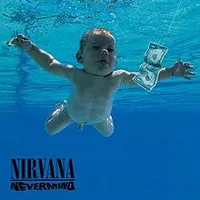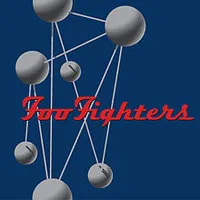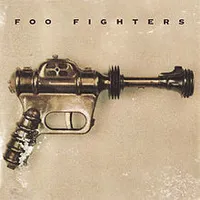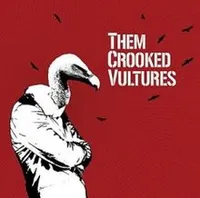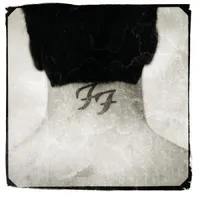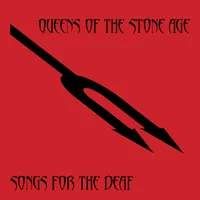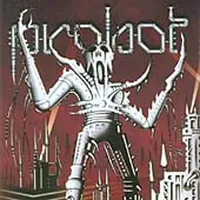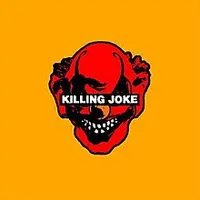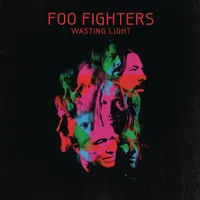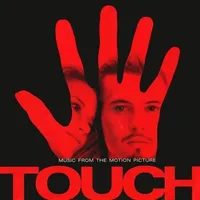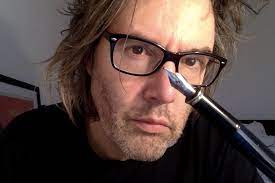The Dave Grohl albums you should definitely own
A musical jack of all trades and master of many, with Nirvana, Foo Fighters, Queens Of The Stone Age and more, Dave Grohl has recorded a truly glittering catalogue
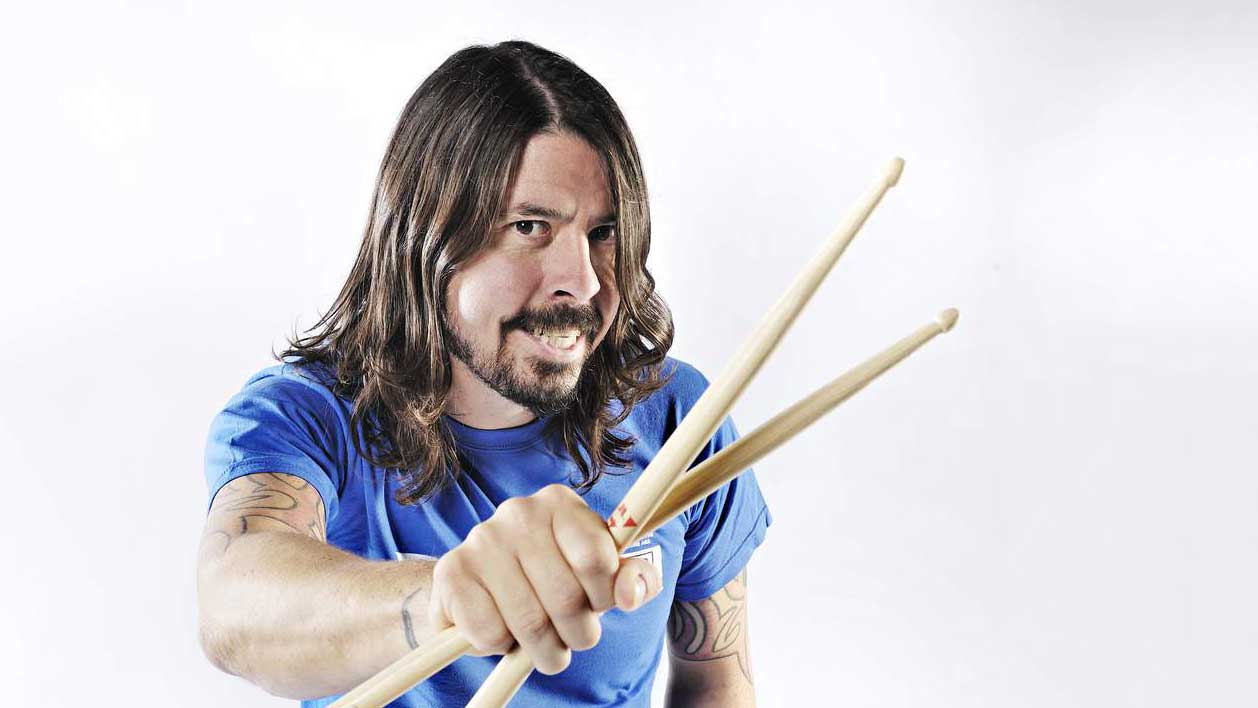
It reads like a poorly pitched film script – the kind studios would scoff at, and that a wary public would skip at the multiplex if it should somehow ever get made. It goes like this: one of the world’s biggest and most influential bands ends in a horribly violent suicide. Drummer emerges from the wreckage. He can both sing and play guitar. He releases an acclaimed debut under the guise of the Foo Fighters and before long, to all intents and purposes, takes over the world. Yes, it does sound ludicrous. But it happened.
Unlike so many of his peers, Dave Grohl wears his artistic heart on his sleeve. The Foo Fighters’ early videos gave a nod to the celluloid excesses that bands like Roth-era Van Halen pioneered: ham theatrics, strained plot lines, a lot of dressing-up. With Probot he got to indulge his heavy metal muscle. He played house drummer for Killing Joke (a dream come true for a fan like Grohl) and Queens Of The Stone Age. He joined supergroups Them Crooked Vultures – in which he must have looked up from his drums and wondered when it was that John Paul Jones considered him a musical equal – and Teenage Time Killers, where the revolving door of collaborators included everyone from Brian Baker and Jello Biafra to Corey Taylor and Neil Fallon.
It’s hard not to love Dave Grohl. No one’s having a better time than he is. He seems like the hard rock everyman who got lucky and sold out Wembley Stadium. His body of work belies that, though: he can be a considered lyricist, a crooner, an arena-rock screamer; he can rail against the world or give a history lesson; he’s a guitar hero who sometimes gets back behind the drums to remind you that it was his thunder that initially brought Nirvana’s Smells Like Teen Spirit to life.
Perhaps there’s a measure of luck in his success, but that’s only because becoming that big will always take a degree of charm, and the right turn of the card. With his lop-sided smile and ability to bounce bank from very real tragedy, he’s a songwriter who is constantly trying to push the envelope and somehow advance himself still.
Here, we pick through the stand-out recordings from Dave Grohl's career.

Nirvana - Nevermind (DGC, 1991)
Thirty million sold and counting, Nevermind could be considered one of rock music’s poisoned chalices. Grohl never got full credit as a songwriter on the record, but it was what he and bassist Krist Novoselic brought as a rhythm section that helped make it so powerful, gripping and enigmatic.
Grohl had already cut quite the figure among the music community in the Pacific Northwest long before throwing in his lot with Nirvana, and the precisely drilled playing displayed on songs like On A Plain and the rapid-fire Stay Away gives real credence to those claims. This great record became the ultimate calling card.
Foo Fighters - The Colour And The Shape (Roswell, 1997)
Although the Foo Fighters’ debut had promised much, few people anticipated the powerful step up that Grohl made with this follow- up. Even though he hired William Goldsmith to play drums, Grohl ousted him as soon as recording began. Gil Norton was brought in for his work with The Pixies, but the record was much tougher- sounding than them – slick, even.
Sounding like it was built with arenas in mind, it ushered in the post-grunge age with Grohl now a fully formed songwriter, and the heavily melodic groove of songs like Everlong and My Hero sat comfortably alongside the furious Monkey Wrench and the brooding Walking After You.
Foo Fighters - Foo Fighters (Roswell/Legacy, 1995)
Floating around in demo form before Nirvana’s traumatic end, the first Foo Fighters album is a solo album of sorts – Grohl played almost everything on the record himself, with the exception of a guitar solo by Greg Dulli. And while it doesn’t hint at the stadium-eating band the Foos would become, it does showcase Grohl’s strong grasp of melody and memorable hooks.
Far less jagged than Nirvana, but still pop and punk at heart, he sounds exultant on This Is A Call, and plays the shimmering, whimsical card that is Big Me with ease. He’d only grow as a songwriter, but it was a damn good start.
Them Crooked Vultures - Them Crooked Vultures (Sony, 2009)
Sitting behind John Paul Jones and Josh Homme, it would be easy to get lost. But Grohl never disappears from view as part of this muscular trio, a bona fide supergroup which became more than a sum of its parts – little surprise, given that all three members were naturals at playing well with others.
Built on what sounds like a series of extended jams (with the fat ultimately trimmed off), the playing is breathtaking in parts, not least Grohl’s laid-back fills that build into sudden furious, explosive trips around his kit to harry the whole thing on.
Foo Fighters - There Is Nothing Left To Lose (Roswell, 1999)
By the Foos’ third album, people were starting to wonder if Grohl could maintain a stable band line-up for more than one record – this time, the fall guy was Franz Stahl, who had joined after The Colour And The Shape.
It hardly seemed to affect their output, though: while Colour epitomised Grohl’s grasp of songwriting smarts and sense of light and shade, Nothing Left To Lose was as radio-friendly as he has ever got. Canny songs like Breakout and Learn To Fly rode roughshod over radio and TV, while Stacked Actors showed just how pissed off Grohl still was at Courtney Love.
Queens Of The Stone Age - Songs For The Deaf (Interscope, 2002)
Josh Homme’s ever-shifting collective were anchored in their own universe by the time it came to record their third album. How else to explain the loose concept of a radio station playing the songs as if it were one long broadcast punctuated by an over-zealous DJ who made Murray Walker sound sedate?
With Grohl (temporarily) disillusioned with the Foos, Homme pounced and got him as drummer. It was a master-stroke, injecting steroids into the heart of their music. Watch the video for No One Knows and your eye is drawn to Grohl pounding away.
Probot - Probot (Southern Lord, 2003)
One can only imagine Grohl’s glee when he managed to green-light his own heavy metal project. Not to mention the dismay of his record company when he told them he was finally getting to duet with King Diamond. The all-star Probot gave Grohl a chance to live out his metal fanboy fantasies, giving him free rein to go back to his garage and beat the living daylights out of his kit.
A record for certain moods – like when you have to clear a dividing wall in your house – it’s at its ferocious best in the hardcore Access Babylon (featuring Corrosion Of Conformity’s Mike Dean) and the thumping, Max Cavalera-assisted Red War.
Killing Joke - Killing Joke (Zuma, 2003)
Dreams do come true, but even Grohl must have thought he was still sleeping when Killing Joke came calling. For their second self-titled album (Killing Joke do things their own way), the band were back to full strength, with Youth, Paul Raven, Geordie Walker and Jaz Coleman looking like a biker gang and sounding about as threatening too.
Full credit to Grohl for finding a way to fit in with their uniquely bloody-minded noise as the band created some of their most dynamic music for years. Grohl thundered, trod lightly and played tribal parts when it was asked of him, adding fervour to songs like Blood On Your Hands and Loose Cannon.
Foo Fighters - Wasting Light (Columbia, 2011)
A poke in the eye for those who thought the Foos’ best days were behind them. Perhaps it was the reintroduction of Pat Smear (the Foos now have almost as many guitarists as your average southern rock band), or Bob Mould’s cameo on Dear Rosemary, or Krist Novoselic playing bass on I Should Have Known, or maybe even Nevermind producer Butch Vig behind the glass, but the band’s 2011 album had an energy that they’d lacked in the years running up to it.
There was talk of Grohl enjoying ABBA as he wrote Wasting Light, but it’s hard to see where they might fit in among songs like the grinding White Limo or Bridge Burning.
Foo Fighters - But Here We Are (Roswell/RCA, 2023)
Like the first Foo Fighters album, But Here We Are emerged from tragedy, with drummer Taylor Hawkins and Dave Grohl's mother, Virginia, both passing away the year before its release. But in contrast to the debut album's reluctance to reference Kurt Cobain's death directly, this album is adorned with poignant lyrics, exposing Grohl's raw emotional state and reflecting his ongoing grief.
Despite being a heartfelt celebration of the departed, the upbeat tracks like Rescued, Nothing At All and Under You still manage to convey a sense of gut-punching poignancy, and Show Me How, where Grohl harmonises with his daughter, Violet, feel like eavesdropping on a private moment. But Here We Are is certainly Foo Fighters most cathartic album, and it might just be their most significant.
...and one to avoid
You can trust Louder
Dave Grohl - Touch OST (Roswell/Capitol, 1998)
It seems a little unfair to single out Grohl’s first attempt at a soundtrack the second, Sound City - Real to Reel, was released in 2013) as one to avoid simply because it might alienate the listener looking for his familiarly explosive hard rock.
It might be disjointed in parts, but this soundtrack gives you some idea of his skill as an evocative arranger – and displays potential to move into films should he get tired of rocking arenas. At its best when he’s performing as Late (another side project) with Louise Post of Veruca Salt on the title track and Saints In Love, and with John Doe of X on This Loving Thing (Lynn’s Song), his deftness of touch is clear for all to see.
Sign up below to get the latest from Classic Rock, plus exclusive special offers, direct to your inbox!
Philip Wilding is a novelist, journalist, scriptwriter, biographer and radio producer. As a young journalist he criss-crossed most of the United States with bands like Motley Crue, Kiss and Poison (think the Almost Famous movie but with more hairspray). More latterly, he’s sat down to chat with bands like the slightly more erudite Manic Street Preachers, Afghan Whigs, Rush and Marillion.
- Fraser LewryOnline Editor, Classic Rock
